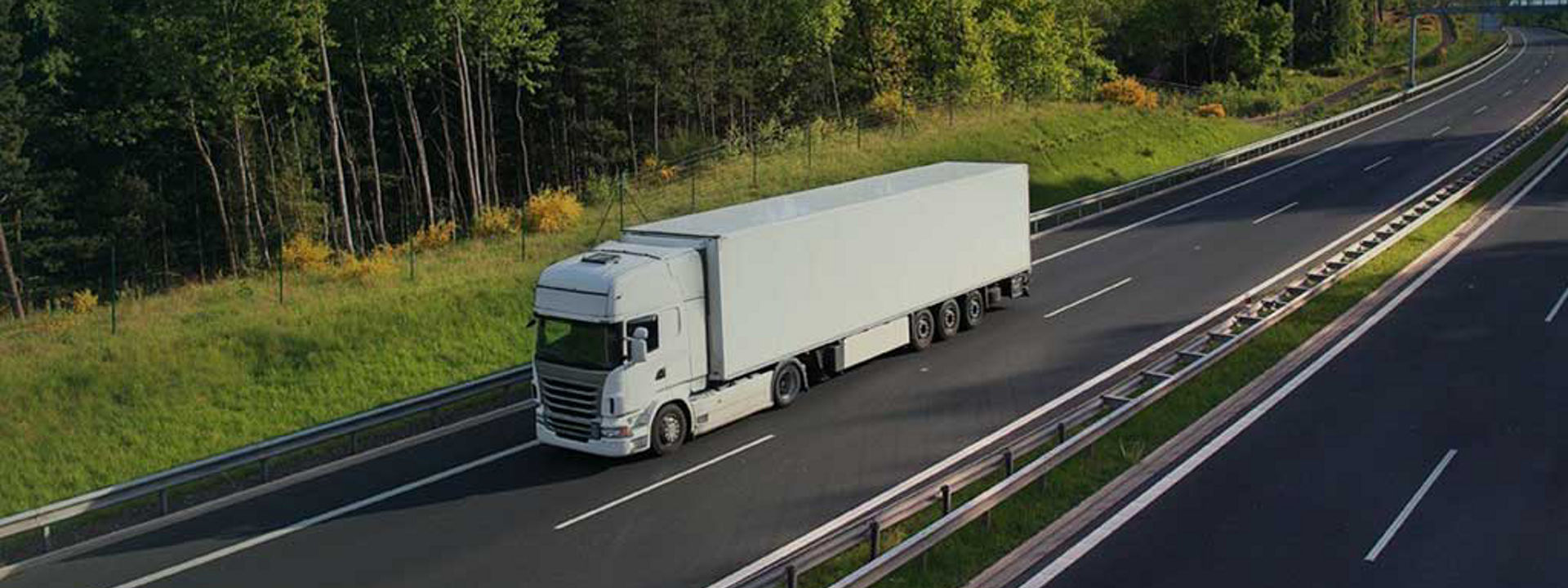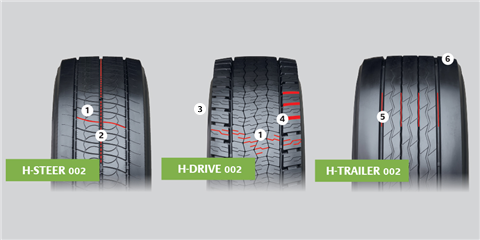Fleet managers are making efforts daily to reduce the total cost of running long-haul freights while at the same time reducing CO2 emissions. And although the efficiency of commercial fleets is determined by many different elements, tyre design is undoubtedly an important contributor in operational efficiency. At Bridgestone, we are committed to helping companies push boundaries by pioneering new technologies and investigating new compound materials. The aim is to support fleet managers by continuing to develop efficient, safe and durable tyres to boost operational efficiency. But how does that process work? How does the perfect commercial tyre come about? And what difference can it make for commercial fleets? Welcome to the ECOPIA H002 lab.
As the only part of a vehicle that touches the road, a tyre should offer the perfect balance of traction, comfort, durability, energy efficiency and overall cost – an equilibrium that can only be found in the most carefully engineered designs. Bridgestone’s newly-developed ECOPIA H002 is a perfect example of how tyre design can impact performance. The design of the ECOPIA H002 effectively lowers rolling resistance to save commercial fleets fuel and money. To better understand how, we asked Maurizio Stecco, Head of Product Management at the ECOPIA H002 lab.
“ECOPIA H002 is a new generation of tyres for long-haul fleets that save fuel, reduce CO2
1 | Understanding the context
Designing an efficient, future-proof tyre starts with knowing for what type of activities and in what kind of conditions it will be used. “For each client niche, Bridgestone researches the most important elements that impact efficiency, durability, comfort and economic viability – including context factors such as the development of new driving technologies, compliance with transportation and logistics regulations and more,” Maurizio Stecco explains. “That information helps us in designing tyres that offer the best possible all-round performance to help streamline commercial operations.”
2 | Choosing the right materials
According to Maurizio Stecco, an important stage in creating highly-efficient commercial tyres is the choice of the right materials. “For ECOPIA H002, our Engineers used the best compound and mixing technology in order to strike the right balance between rolling resistance, wet grip and wear. All ECOPIA H002 tyres were made with a NanoPro-Tech™ compound with nanoselective reactions to reduce energy loss in the tread and lower rolling resistance. Moreover, new filler materials provide low hysteresis for lower rolling resistance and enhanced durability. For ECOPIA H-Drive 002, we specifically designed a new high-silica compound technology and new mixing technologies for improved silica dispersion in order to boost wet grip and deliver long-lasting traction performance. The materials we used throughout the ECOPIA H002 range were carefully chosen and engineered in-house to boost fuel efficiency without compromising adherence, traction and durability.”
3 | Engineering the perfect design
Next to the types of materials used, another aspect that is crucial to a tyre’s performance is its tread design. “The way grooves, slits and sipes are set up in the top surface of the tyre can impact safety as well as driver comfort, durability and fuel-efficiency,” says Maurizio Stecco. “The innovative pattern design of the ECOPIA H002 was specifically designed to improve rolling resistance and wet grip. Its optimised compression stiffness minimises deformation and energy loss. This results in lower resistance and similar wear, despite the lower optimised tread depth compared to previous generations. Moreover, the higher effective contact area with optimised water drainage ensures a better wet grip and lower braking distance in the wet. All of this allows the tyre to run smoothly – even on long journeys and in challenging weather conditions.”
The ECOPIA H002 design was optimised in every detail

